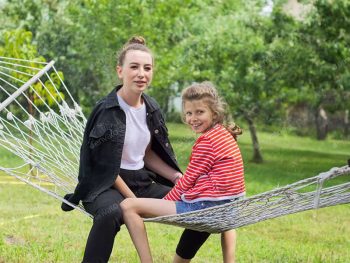Home /
TF-CBT: A More Comprehensive Trauma Assessment and Treatment Process for Children and Teens

In the coming months, the Steven A. Cohen Military Family Clinic at Centerstone will be offering a more comprehensive trauma assessment and treatment process for children and teens from birth to seventeen years old. One important treatment method that will be implemented by staff within the clinic will be Trauma-Focused Cognitive Behavioral Therapy (TF-CBT). TF-CBT is designed for children and adolescents that have been exposed to an event that has threatened their well-being both physically and emotionally and has overwhelmed their ability to cope. Examples of traumatic events can include exposure to violence, sexual or physical abuse, neglect, natural disasters, or any event that was frightening and resulted in the child’s wellness and sense of safety being compromised.
Children and adolescents exposed to traumatic events may develop symptoms such as worry, sadness, irritability, and/or difficulty managing daily experiences. Caregivers may notice defiance, aggression, and the child using unhelpful coping skills and displaying mood irregularity.
TF-CBT was specifically designed to address the needs of individuals with these symptoms and to support the caregivers in becoming active allies in the healing process. TF-CBT moves through specific objectives in a structured manner. Children/adolescents and their caregivers will learn about common reactions to trauma, myths about trauma, and what it means to have trauma reminders. The caregiver is supported to enhance and develop effective parenting skills.
The child/adolescent, caregivers, and clinician work together to build skills in relaxation and feelings identification. The clinician uses a variety of interactive, creative, and age-appropriate interventions to enhance understanding and encourages the child/adolescent and caregiver to actively practice the newly learned skills between therapy sessions.
In TF-CBT the child or adolescent, through the support of the clinician, begins to understand the relationship between thoughts, feelings, and actions. They are guided to recognize their thoughts and then learn the difference between unhelpful and helpful thoughts. The caregiver also develops an increased understanding of thought processes. This ensures that the caregiver can help to guide and create alternative thoughts that will be more helpful, and at times, more accurate in situations that may arise in the future.
Throughout the treatment process, the traumatic event is gradually explored. When the child/adolescent has begun to demonstrate the use of skills, the clinician and child begin to develop what is called the trauma narrative. Together the child/adolescent and clinician explore the traumatic event. This is done in a manner that meets the needs of the specific child/adolescent, a storybook, a poem, a song, audio recording, or other modes. The trauma narrative is reviewed and developed over several sessions while the caregiver is concurrently prepared to hear this narrative. Directly talking about the trauma and removing the guilt, blame, and shame often held by the child/adolescent regarding the event is an important healing component.
The final phase of TF-CBT is around increasing personal safety skills. This future planning process helps them learn how to recognize their internal cues and messages and also learn important safety skills. Again, caregivers are actively engaged throughout the treatment process as well as these final phases of treatment that lead up to discharge from treatment. Discharge is a positive and hope-filled celebration of the wonderful treatment gains made. The ability to offer such a superb treatment for children and adolescents in this community is very important to staff at the Steven A. Cohen Military Family Clinic at Centerstone. If you know of someone who may benefit from this treatment model, please call us at 931-221-3850 or email us at Cohen@centerstone.org.


